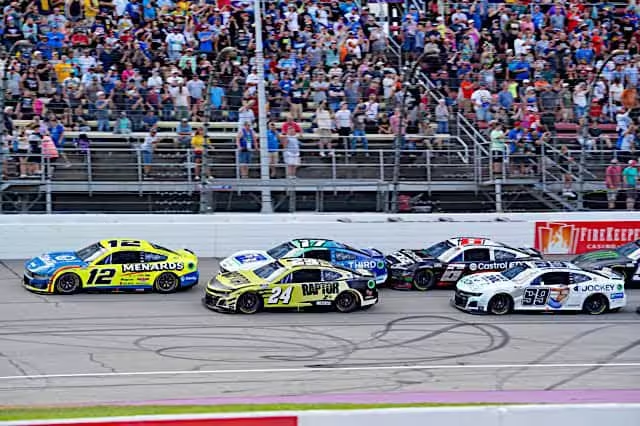Mother Nature once again put a damper (some pun intended) on the racing action at Michigan International Speedway on Sunday (Aug. 18).
As such, the race was suspended at the conclusion of stage one to Monday. While race postponements and suspensions create logistic nightmares for drivers, teams and media alike, there is perhaps no greater demographic affected than the fans.
When a Saturday race gets postponed to Sunday, it’s a lot easier for fans to come back to the track – with no work or school on Sundays, fans could squeeze out an additional day at the track before heading home that evening. But when a Sunday race gets postponed to Monday, fans are at a crossroads.
This is amplified especially with a race like Michigan, one that falls right in the middle of back-to-school season. Now, not only do adult fans have to decide whether or not they want to take a day off of work, but some also have to decide if they want their kid to miss one of their first few days of school or leave them heartbroken and head home before they can see a race.
A lot of times on Sundays, race postponements could be avoided if the start time of the race was moved up earlier. Michigan was no different, as the weather was never a factor at the track until right as the drivers left pit road for the opening pace laps. The race was slated to start around 2:30 p.m. ET – had NASCAR decided to move the race up by even so much as an hour, the race could have gone halfway and there would have been no need to come back Monday.
But that’s where TV comes into play. TV largely dictates the start times of races nowadays. Generally, when it comes to East Coast races, the desire is to start at 2:30 p.m. ET or later to allow the West Coast audience to tune in after waking up or after church. Back when races started at noon ET, West Coast fans would’ve had to wake up at 9:30 a.m. PT to catch the green flag.
By starting races later in the afternoon, there’s a bigger West Coast fanbase tuning in every week. But it comes at the expense of fans at the track, who risk not being able to return the next day if the race gets postponed for any reason.
Several racetracks, Michigan included, also don’t have any lighting to potentially delay a race into the evening. For those tracks, it’s always going to be a race against sunset instead of a race…
Click Here to Read the Full Original Article at …

